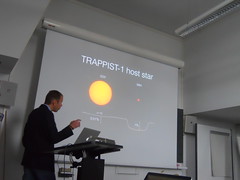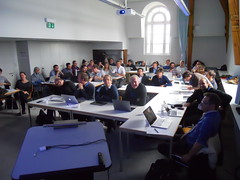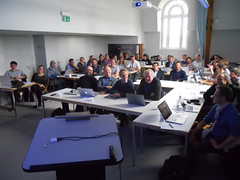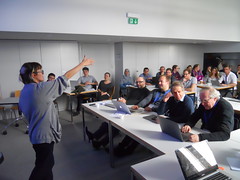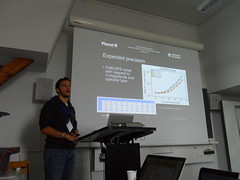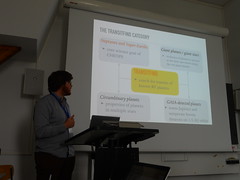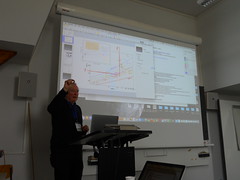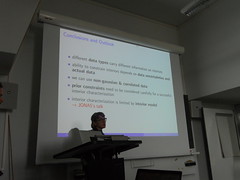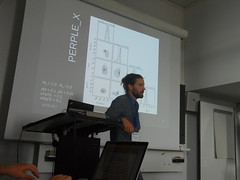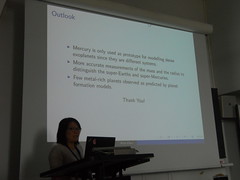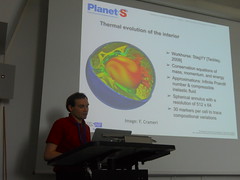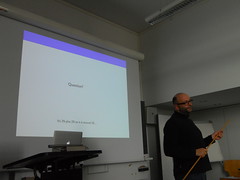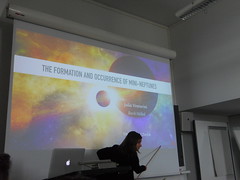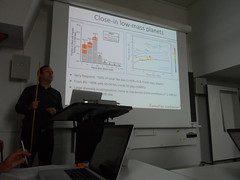Workshop on exoplanet densities
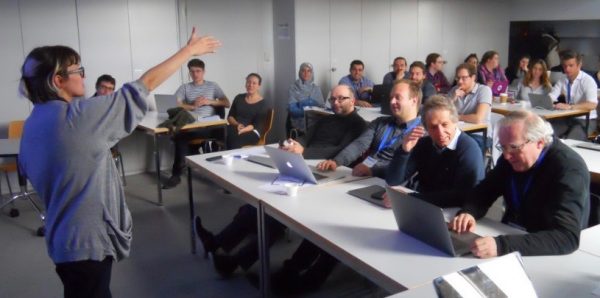
About 40 PlanetS members and associates met on 3 May 2017 to discuss topics related to exoplanet densities in a workshop at the University of Bern. «It was a day to get inspired,» summarizes Caroline Dorn who organised the event together with François Bouchy.
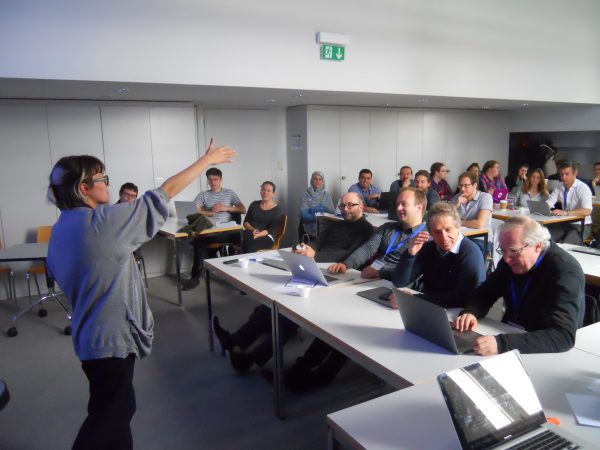
PlanetS members and associates at the workshop on exoplanet densities. (Image Thibaut Roger)
How confident are we with the determined masses and radii from astrophysical data? What can we learn about planetary interior if you know the mass and the radius of an exoplanet? And what does it tell us about its formation? «These questions concern many fields in planetary research,» says Caroline Dorn, postdoc at the University of Bern who works on characterizing exoplanet interiors. To bring together scientists from different groups within the NCCR PlanetS, she and François Bouchy, professor at the University of Geneva, invited researchers to give short talks and discuss at a workshop in Bern. The reserved room was more than full, showing the big interest in the hot topic.
«Our goal was to have many short presentations to get an overview of the topics and projects that our community works on and to see where there could be possible collaboration in the future,» summarizes Caroline Dorn. In the first session, the speakers focused on observations with existing instruments and future space missions such as TESS, CHEOPS and PLATO. Whenever the researchers try to determine mass and radius, how confident are they of their data, what about possible biases and how can stellar parameters cause inaccuracies: These were some of the questions addressed.
Choosing the best targets
In the second session, the researchers presented models of the formation and composition of exoplanets. For example, they discussed how planets can be classified in different interior types based on their mass and radius, how significant model uncertainty is for inferring the interior of rocky planets, how the transition from gaseous to solid planets works and how Super-Mercuries or Mini-Neptunes are formed. «At the splinter sessions, we had a broad discussion on what are the most important targets to study,» explains Caroline Dorn: «which is of course linked to specific science question from planet formation and evolution. And furthermore what are the key parameter we should focus on because they have a high information content on planetary interiors? »
After an exhausting day packed with lots of interesting information, stimulating discussions and inspiring thoughts, the organizer of the workshop is confident that the first step is made for future collaborations in the field of exoplanet densities within PlanetS.
